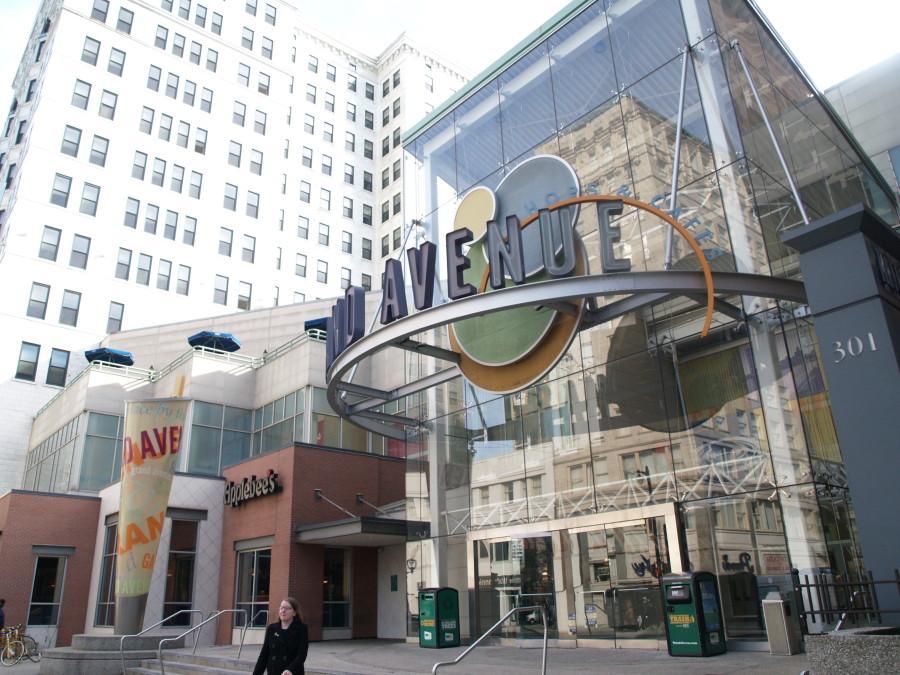
For years, credit card companies quietly acquired contact information for students and alumni from universities by offering financial incentives to schools, including Marquette.
The university has an agreement with Bank of America through which it gives the bank contact information for alumni, including phone numbers, addresses and e-mail addresses.
Bank of America uses this information to give alumni the opportunity to own a credit card bearing the Marquette logo, said Tim Olsen, a communication manager for the university.
In return, Marquette gets at least $825,000 in royalties by the end of the agreement.
Marquette’s affinity agreement, as these types of contracts between universities and credit card companies are called, is one of approximately 700 that Bank of America has with universities all over the country, said Betty Riess, a spokesperson for Bank of America.
Legislation passed earlier this year via the Credit Card Accountability Responsibility and Disclosure Act now requires agreements like these be made public.
The fine print
According to the terms of the agreement, Marquette earns $1 for every credit card account opened as a result of mailings Bank of America sends out to alumni, provided the account is actually used and remains open for at least 90 days.
The university also earns $1 when the card’s annual fee is paid, as well as half a percent of the purchases made on the card.
The university does not disclose how much it has earned to date from the agreement, nor does it specify where the money goes, Olsen said in an e-mail.
But the agreement is not a significant source of income for the university and exists more for the benefit of alumni, he said.
The contract also stipulates that Bank of America be permitted to set up promotional tables at various athletic events, including men’s and women’s basketball games.
Marquette’s current agreement has been in effect since 2006 and extends through June 2011.
Bank of America sends approximately four mailings a year, said Tim Simmons, executive director of the Marquette University Alumni Association. These mailings reach anywhere from 3,000 to 25,000 alumni.
Currently, there are about 105,000 Marquette alumni, he said.
Marquette’s agreement was first inked in 1996, Simmons said. Many colleges and organizations were signing agreements at that time, and Marquette’s Alumni Association decided to investigate a possible agreement.
They eventually signed with MBNA America Bank, now owned by Bank of America.
According to both Olsen and Simmons, Marquette has never provided current student information to MBNA or Bank of America.
“We’ve always avoided it,” Simmons said. “The university position expressed through (the Office of) Student Development, and shared by the alumni association, is this is not something we want to market to students.”
Alumni express their sentiments
This interest in an agreement was born out of a desire to give alumni another way to show their Marquette spirit, Simmons said.
“It’s pretty cool to pull out a credit card that has the Marquette logo on it,” he said. “I get a lot of comments on mine.”
Marquette sends alumni contact information to Bank of America and the bank handles all of the mailings, Simmons said. The bank does not keep or use the information for any other purposes.
The mailings do not include information for how alumni can opt out of the mailings, but people can contact the alumni association if they do not wish to receive future mailings, Simmons said.
“It doesn’t say, ‘to opt out on these mailings call Tim Simmons,’ but that’s kind of what happens,” he said. “It’s pretty easy to find us.”
But this doesn’t happen often, Simmons said.
“We really get very little feedback from people saying the alumni association shouldn’t be even partnering with anyone,” he said.
Lauren Lakomek, a 2010 graduate from Marquette, said she has not yet received any mailings from Bank of America for a Marquette credit card.
However, she said she wasn’t comfortable knowing her information could potentially be turned over to Bank of America without her consent.
“I kind of feel like they’re using that information inappropriately,” Lakomek said. “If I want a credit card, I can go out on my own to get one. I don’t need that kind of solicitation.”
But Jane Pruhs, who graduated from Marquette in 2006 with an MBA, said she wasn’t particularly concerned by the agreement with Bank of America.
“I guess I’d prefer that they not hand out my personal information for those purposes, but I do understand that universities are continually under pressure to raise funds for the ever-growing cost of education,” she said.
Although she is not interested in having a Marquette credit card currently, Pruhs said she still uses the UW-Madison credit card she signed up for while an undergraduate.
The stigma behind affinity agreements
Affinity agreements with universities have received scrutiny in recent years because of the way some of them targeted undergraduate students who may not fully understand how to responsibly use a credit card, said Ed Mierzwinski, consumer programs director at U.S. PIRG, the federation of state Public Interest Research Groups.
“For years, the credit card companies tried to hide these contracts,” Mierzwinski said. “That should suggest they were up to something.”
Because these credit cards were being marketed in tandem with students’ universities, students were often more inclined to sign up for a card, he said.
“The students presumed that, if they got a credit card offer from their college or a bank with the picture of their college, the college must endorse the card in some way or that the card must be better some way,” Mierzwinski said. “We’ve never found that the cards are better than any other cards.”
According to Riess, Bank of America targets alumni and older non-students who are interested in having a credit card with the Marquette logo, and not undergraduate students like some companies have done.
“We don’t market on campus to students, and we haven’t for some time,” Riess said.
It’s possible that some previously negotiated contracts still in effect include provisions for acquiring student information, but the bank is moving away from this practice, she said.
She estimated that 98 percent of credit cards obtained through Bank of America’s collegiate mailings are owned by alumni or non-students.
Simmons said Marquette’s card is probably not the best deal out there for alumni, but the purpose of the card is more about having the Marquette logo than having an exclusive deal.
“As a card holder, can I get a better deal on a credit card? I think anyone can always get a better deal (if they look hard enough),” he said.
Overall, Mierzwinski said affinity agreements themselves are not necessarily a bad thing, since they do provide another source of income for colleges.
He said he hopes by making the agreements public and enacting other legislation meant to protect young consumers, the potential for the agreements to harm students is limited.
“What we’ve done is try to protect the most vulnerable,” Mierzwinski said.
Marquette’s affinity agreement with Bank of America






